Dot Matrix Shader For Cycles And Eevee
For an interesting deal check https://blendermarket.com/products/shader-bundle and get 33% off for a bundle containing 4 different shaders.
Dot Matrix Shader will take care of transforming your regular textures into a dot pattern used in dot matrix displays (in airports, festivals, stadiums, big signs and banners, monochrome displays...etc), and everything that has a regular dot pattern (receipts, old printers, expiration date...etc).
Features:
- Fully procedural: Not only your scene will not get polluted by additional image textures, but you will also get full control over some features that are hard or impossible to do with regular image textures. Not to mention that it takes no memory when rendering and it's always sharp no matter how much you zoom in.
-
Animateable : The shader was created with animation in mind. I have included 2 different ways to animate it depending on your needs (see image below).
- Pixel offset : scroll your image by increments of 1 pixel (dot) at a time, you don't need to do the math, the shader takes care of it and only considers the integer part, discarding the fractional part (eg: both 1.000 or 1.514 are considered 1 and the texture is moved by 1 pixel). That way you only need to use 2 keyframes for any number of values and frames you want. This is suitable for old/retro or low-resolution displays.
- Precise offset : lets you scroll the image by a precise amount. The shader will interpolate and make the animation look smooth. You can use it to make small adjustments to display your images perfectly. it works best for modern and/or high-resolution displays.
You can use either method or both at the same time.
Alternatively you can use any 3D texture (noise, voronoi...etc) and move it on the Z axis to make it move, or use any video or image sequence like you normally do.
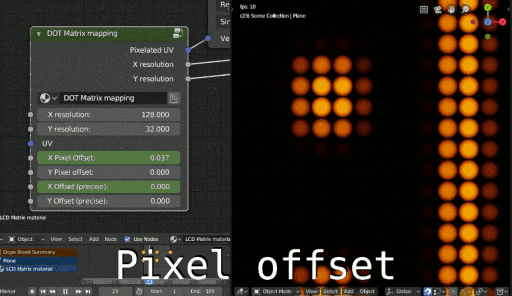
- Cycles and EEVEE support: The shaders have been tested with Cycles (blender 2.77, 2.78, 2.79, 2.80) and EEVEE and it works perfectly. It is more responsive in EEVEE than Cycles and the old OpenGL material preview.
- Adjustable resolution : No need to worry about your image resolution, all you have to do is to set the X and Y resolution inside the shader and it will do everything for you (pixelation, aligning it with the dot pattern). You can for example use a 1920x1080 image and set the X and Y resolution to 128x72 and it will "scale down" and display correctly. Just make sure you maintain the aspect ratio to make the dots perfectly circular, unless if you have something else in mind, of course.
-
Customizable: The benefit of procedural textures/shaders is the high degree of configurability and freedom. I made it possible to adjust as many useful parameters as possible.
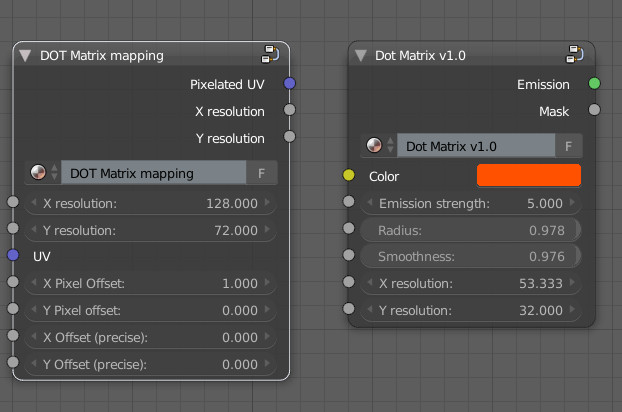
You can change the radius of the dots, either all of them at once, or one by one if you are using a texture (it is recommended to pixelate it with the included node, but it's not necessary).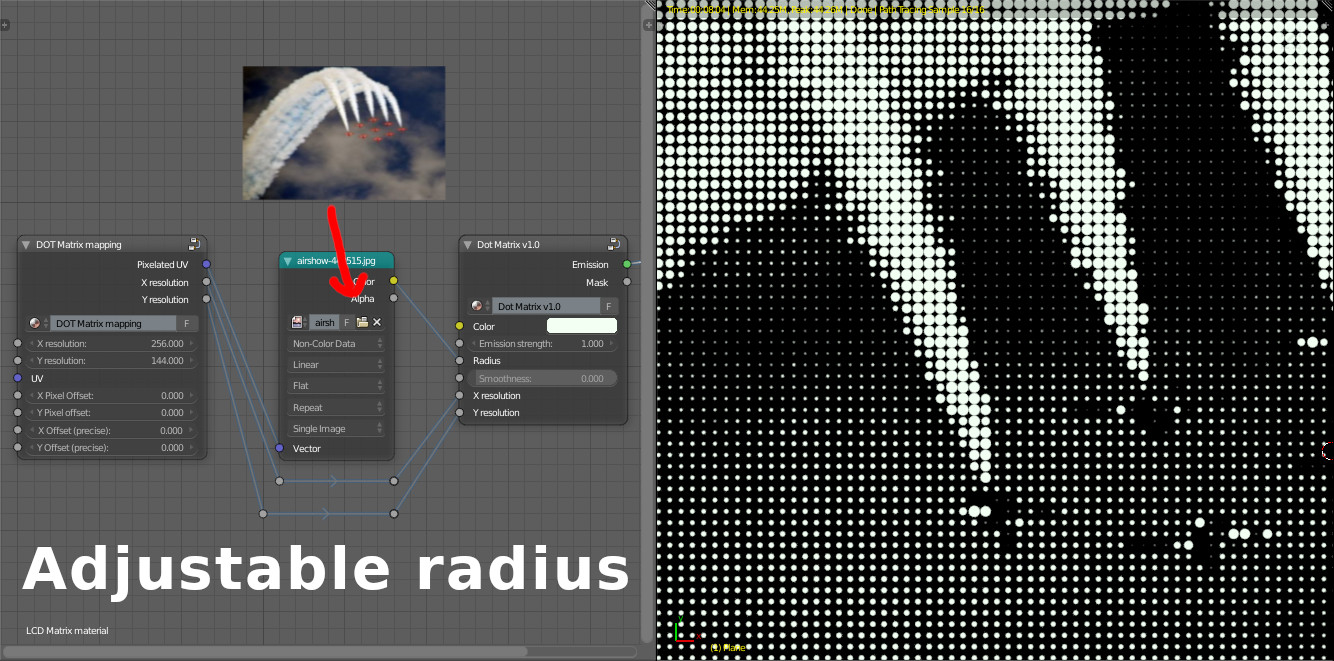 You can have either a colored display or a monochromatic one easily. Just have a look at the setups below
You can have either a colored display or a monochromatic one easily. Just have a look at the setups below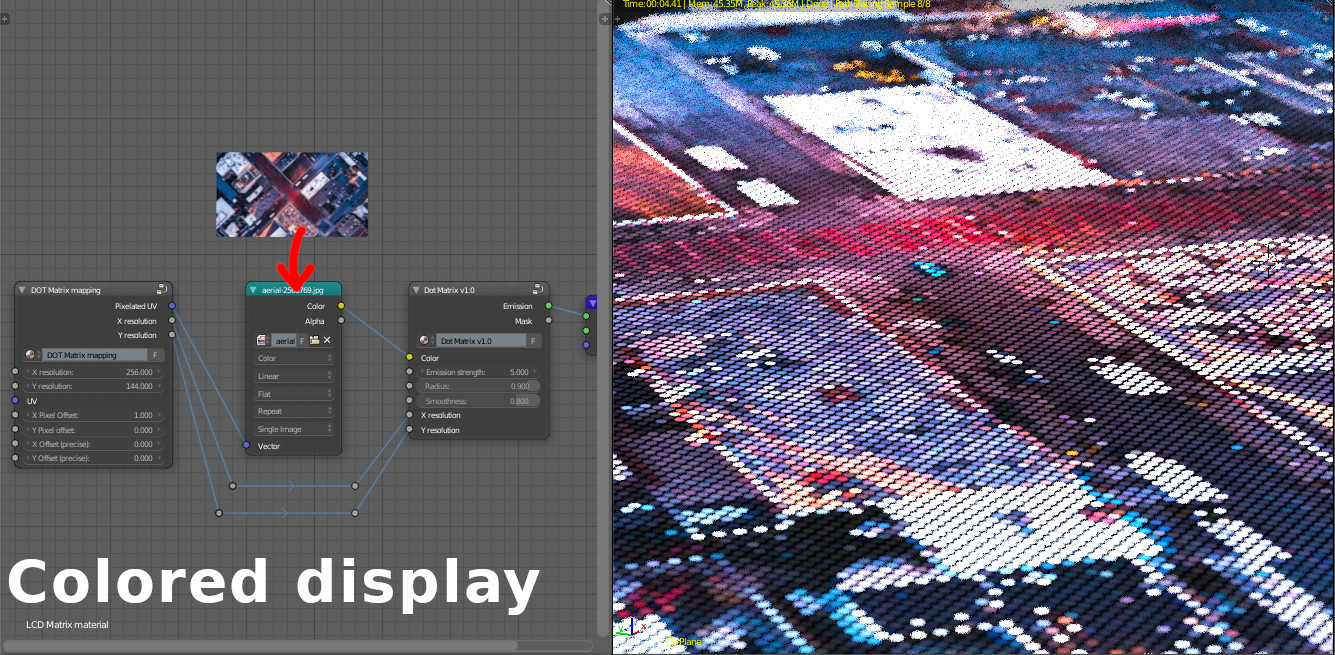
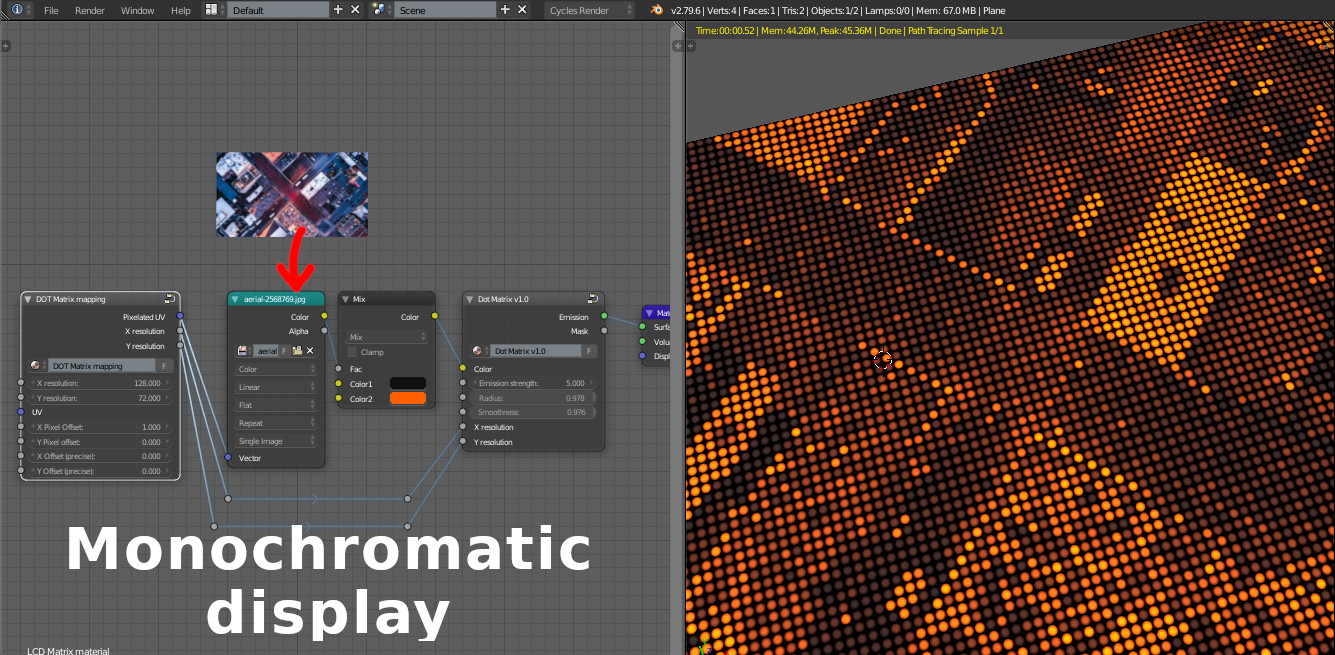 You can even use only the "Dot Matrix Mapping" node to have a pixelated image if you want to
You can even use only the "Dot Matrix Mapping" node to have a pixelated image if you want to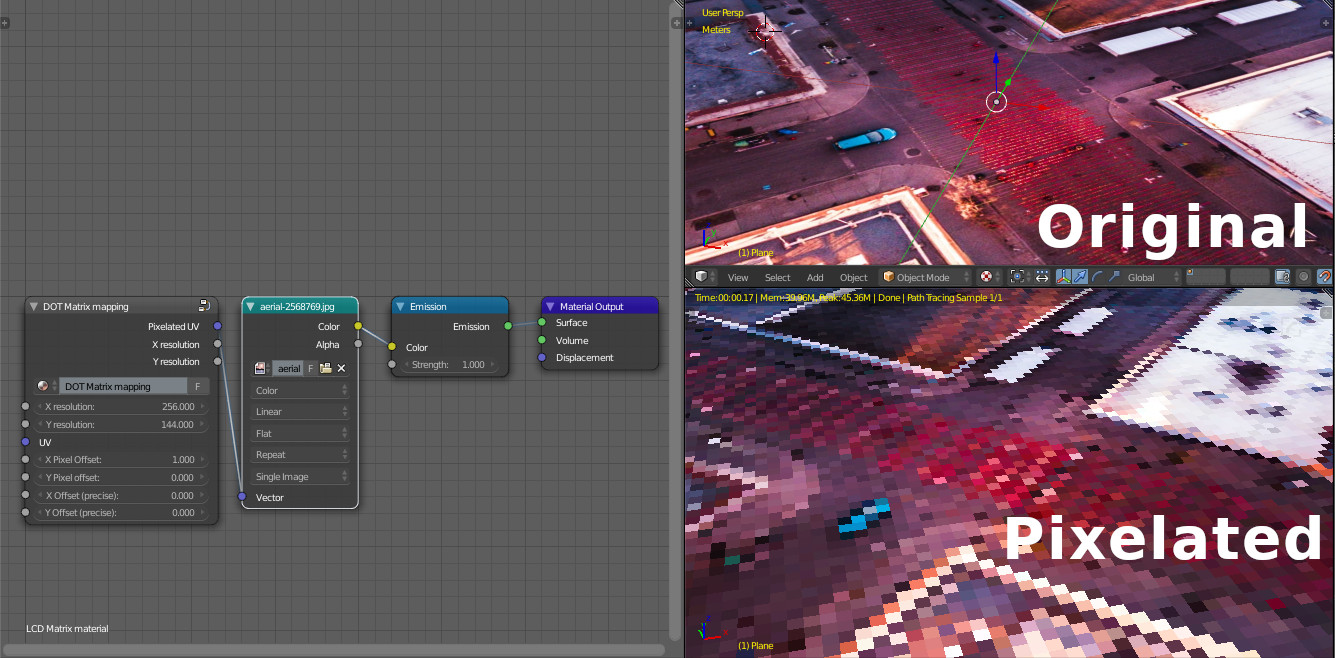 Check the documentation for more information.
Check the documentation for more information.
Why should I get this?
There are many reasons to do so, but the best one is to save your time and effort to focus more on your scene. This shader has been tested, fixed and improved by myself, and I have used it in many scenes (see the examples).
Another reason to buy it is when you are not sure how to create it. Perhaps you are new to blender, or you are experienced in other areas but not procedural shaders, or you don't have experience with programming/writing shaders and are missing some fundamentals...etc. It doesn't matter because no one is expected to know everything and you don't need to limit yourself.
And finally, by getting this, you will help to fund the Blender development because a small percentage of the revenue will be donated. It will also encourage me to create more useful content for the whole blender community.
Related Products:
Automated 7-Segments display Shader
Note: the shaders can be mixed together as demonstrated in the following video












